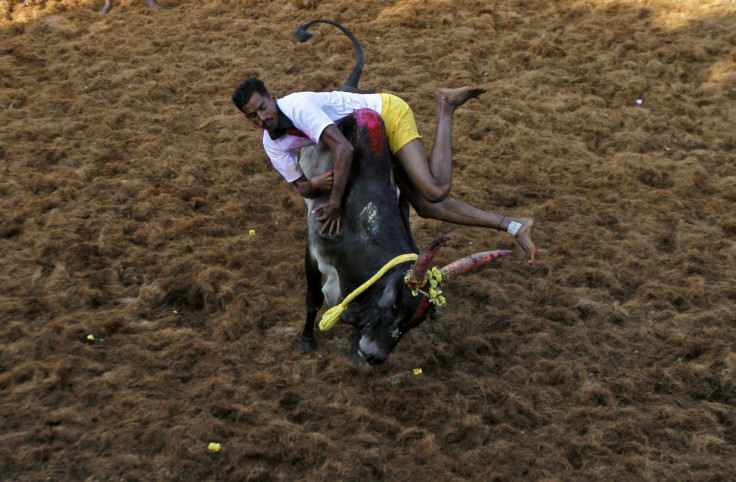India: Thousands gather across Tamil Nadu to protest against ban on bull-embracing festival Jallikattu
Protesters took to the streets and demanded revocation of ban on Jallikattu.

Thousands of young protesters across the southern Indian state of Tamil Nadu took to the streets on Wednesday, 18 January over the ban on the traditional bull-embracing festival known as Jallikattu.
Chennai, a coastal city and the capital of Tamil Nadu, witnessed demonstrators of all ages and genders spending the night on the popular Marina beach protesting against the ban. Traffic was briefly disrupted in certain parts of the city.
Shankar, a student protester who goes by a single name, told the IBTimes UK,"I'm here to show solidarity with the Tamil cause. Jallikattu is part of our Tamil identity and it is necessary to preserve our identities in the modern world."
The protest by thousands of students and youngsters comes after the central and state governments failed to enable the conduct of Jallikattu owing to a Supreme Court order that banned the bull-embracing sport.
The apex court passed the order after animal rights organisation People for Ethical Treatment of Animals (Peta) filed a petition for an outright ban of the festival.
Proponents of the festival cite evidences from older scriptures to say that the festival has been taking place in mid January in this part of the world as a tradition for several hundred years.
Unlike the Spanish bull-fighting, in Jallikattu – also known as "Eru Thazhuvudhal" or "bull-embracing" – young men compete with the bulls by holding on to the animals' hump for a brief minute or so.
Supporters of Jallikattu argue such events is key in preserving the native breed of cows and bulls in the region but animal rights groups have strongly been parading against the occasion. Despite repeated requests from the Tamil Nadu government, both the federal government and the top court have refused to overturn the ban.
© Copyright IBTimes 2025. All rights reserved.




















